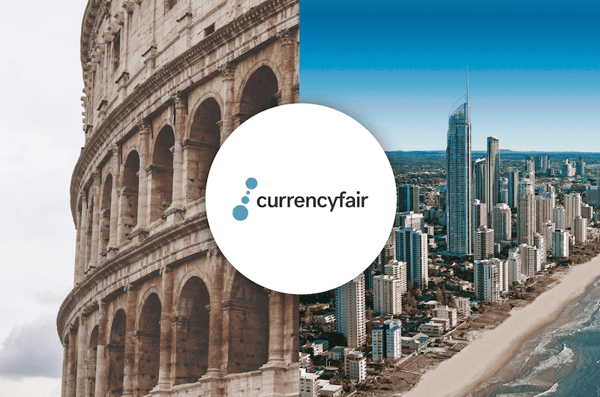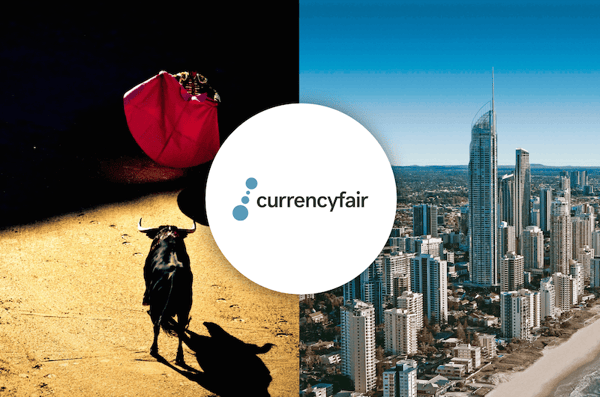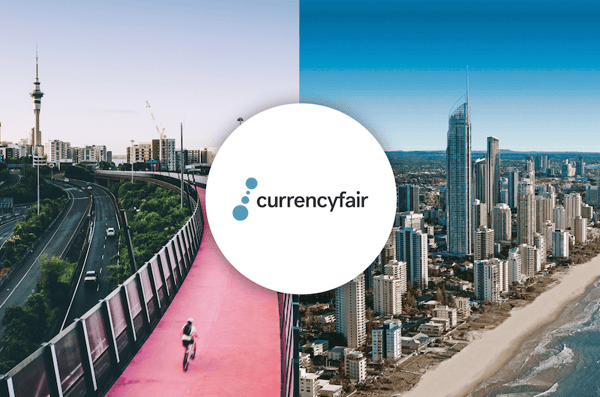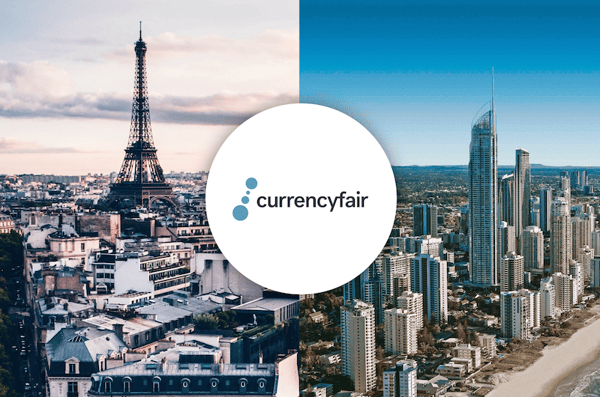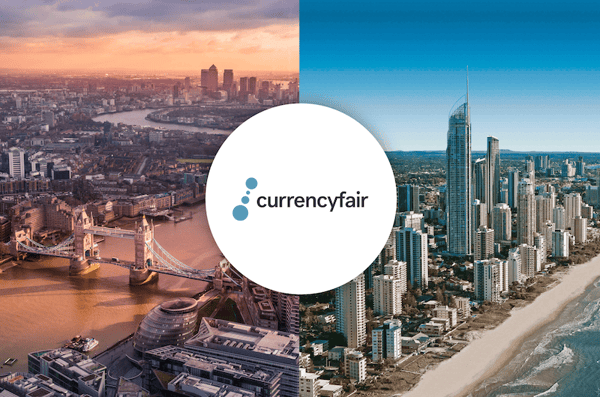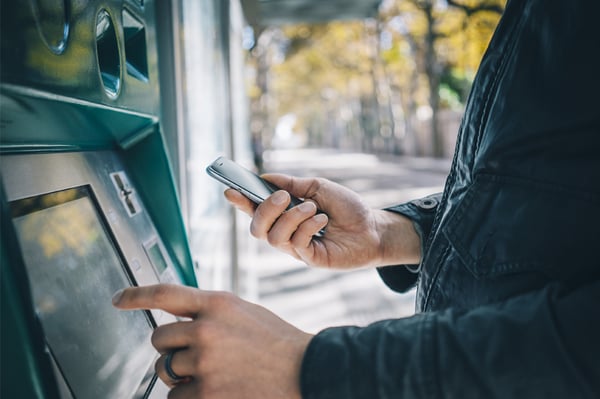There are no legal restrictions on buying property in Sweden as a foreigner, but competition is stiff if you're scanning this slice of the Scandinavian market. Everything from city apartments to lakeside cabins is likely to be hot property in the laid-back Nordic nation, which is home to over 30,000 United Kingdom and some 3,000 Irish expats. If you're looking to invest in real estate in Sweden as a foreigner, the secret is to be realistic, ready, and fast.
You should also be aware of hidden bank fees and fluctuating exchange rates once you're ready to exchange currency for a deposit on a Swedish property. With great rates and minimal fees, CurrencyFair's safe, reliable service saves you money, leaving you with more cash to spend on your ideal Swedish home.
Why buy a property in Sweden?
Life is good in Sweden, at least according to life satisfaction and work-life balance scores from recent Organisation for Economic Cooperation and Development (OECD) surveys. The country has an above average disposable annual income of USD $33,730 compared to $30,490 for the OECD in general, and the economy is strong, growing 4.9% in 2021.
For expats in search of fresh surroundings, Sweden has plenty to choose from, stretching from Malmo in the south, just across the Oresund bridge from Copenhagen, through the Stockholm archipelago on the Baltic Sea, to Swedish Lapland in the Arctic Circle. Almost two-thirds of the country is covered in forest, or you can escape to more than 100,000 lakes for winter or summer. In fact, exploring is encouraged. The Swedish concept of ‘Allemansratten' gives you the explicit right to walk, camp, cycle and ski almost anywhere.
For the property investor, Sweden proposes some of the lowest interest rates in the world (indeed, there were five years of negative interest rates to 2019), low transaction costs, and European Union membership.
Fashionable Scandi living doesn't come cheap, however, unless you're prepared to buy outside the major cities, where you can get a beautiful countryside retreat for a fraction of the cost of a terraced house in the UK or Ireland. But if you're moving from Dublin or London to Stockholm or Gothenburg, the prices at least will make you feel at home.
Key considerations if you're moving to Sweden
Although Sweden is part of the EU, the country has remained outside the euro zone, so the currency is still the Swedish krona (SEK). Luckily, CurrencyFair fully supports transfers to and from SEK with great rates and no hidden fees. Despite Scandinavia's reputation for a high cost of living, it's actually lower than in the UK, particularly when it comes to rent, utilities and transport. Where many expats do struggle, however, is with integration. Three in five expats find it hard to make friends in Sweden according to a survey by InterNations.
Visas and residency
From a legal perspective, Sweden does not have a Golden Visa program so you will not automatically obtain residency by buying a house. Of course, EU, European Economic Area (EEA) or Swiss citizens can live, work and own property without a visa, but third-country nationals (which now includes the UK), will need to apply for residency for stays beyond 90 days. The good news is that foreigners can buy property and apply for mortgages, unlike Denmark across the water where you must be resident for at least five years before you can buy.
Transaction costs and taxes
You won't have to worry about the agent's fee (typically 3 to 5%), as that is the responsibility of the seller, but there is stamp duty to factor in, although it's relatively low at 4.25%. Where taxes are concerned, the received wisdom is that living in Scandinavia means covering an exorbitant tax rate to fund social care. In reality, there's no cause for concern.
Inheritance tax was abolished in 2005, and capital gains are taxed at a flat rate of 30%. Rental income for investors is taxed as business income and is levied locally:
-
32.34% average nationally
-
20% state tax above the SEK 540,700 threshold (equivalent to £42.7k, $52.1 or €49.1 as of December 2022.)
What are the top property hotspots in Sweden?
At this point, it's probably prudent to admit that while buying a property in Sweden is fairly easy, finding one is famously difficult. Due to a chronic shortage of housing, the Swedish rental market in particular is heavily oversaturated. New listings tend to unleash a feeding frenzy that inexperienced investors from overseas may struggle to navigate.
Start your search on Hemnet, the Swedish property portal which has an English language version. For reference, the average house price nationally is around 2.9 million SEK (equivalent to £229,350, $279,419 or €263,364). That works out at around 44,545 SEK per square metre.
Buy in one of the three main cities, however, and prices will be a lot higher:
-
Stockholm. House prices rose 18% in 2021 and now average 115,563 SEK per square metre.
-
Gothenburg. Prices rose 15% in 2021 to around 62,937 per square metre.
-
Malmo. Prices rose 18% in 2021 to around 39,929 per square metre.
Nationally, prices actually fell by 3.05% in 2022, but over a 10-year period have risen by 94.61% on the back of a housing boom.
The process for buying a home in Sweden
Step one will be to secure a mortgage, and for that you will need to provide:
-
Proof of employment/stable income (i.e. a full time job).
-
Credit score
-
Residency permit
-
ID number
-
Swedish ID card
You can't borrow more than 85% of the property value if you're applying for a loan in Sweden. Alternatively, you can finance a purchase with the funds from a property sale in your home country (or international mortgage), in which case the residency requirements would not apply.
The real estate agent handles the entire process, with no conveyancer or lawyer required. Real estate agents in Sweden are highly professional and regulated, but they're also in demand, so personal viewings are rare. Instead, agents will hold an open house viewing for a new listing, and interested buyers then bid furiously. These bids are not legally binding, however, so you can juggle several properties on your wishlist simultaneously.
Prepare to find out if your bid has been successful by SMS, and to close within as little as 14 days if you're successful. Once your purchase agreement (or ‘kapeavtal') is signed by the seller, you will transfer the deposit, which is typically as little as 15% of the purchase price. It is your responsibility to organise a professional inspection of the property, but as soon as you're satisfied and release the full sale amount, the seller will issue a bill of sale (or ‘kapebrev') and details will be forwarded to the Land Registration Authority.
Don't let hidden bank fees and fluctuating exchange rates put the brakes on your Swedish property purchase. With great rates and minimal fees, CurrencyFair's safe, reliable service saves you money, leaving you with more cash to secure your ideal Swedish home with a winning bid.
This information is correct as of December 2022 This information is not to be relied on in making a decision with regard to an investment. We strongly recommend that you obtain independent financial advice before making any form of investment or significant financial transaction. This article is purely for general information purposes. Photo by Jessica Pamp on Unsplash




